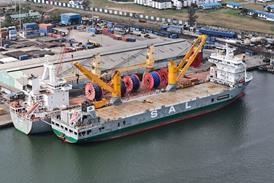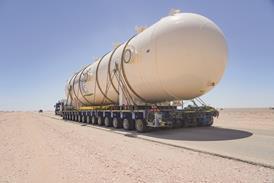The International Chamber of Shipping (ICS) and the International Transport Workers’ Federation (ITF) have issued a joint call on behalf of seafarers to governments to facilitate the essential movement of seafarers and marine personnel.
“The issue of crew changes has the potential to become a massive problem for the global economy if governments do not address our concerns,” said Guy Platten, secretary general of ICS, adding that it has worked alongside ITF to propose pragmatic solutions for governments to work on.
“We stand ready to support the G20, the UN institutions and most importantly our seafarers. Seafarers are the unsung heroes of global trade but the current restrictions being put in place to respond to the COVID-19 pandemic are not sustainable.”
Stephen Cotton, general secretary at ITF added that the maritime industry is calling on governments to show respect for seafarers. A global strategy is needed between key stakeholders, including major airlines, to ease restrictions and facilitate the changeover of ships’ crews.
“ITF and ICS have grave concern for thousands of seafarers whose duty on board has ended but are forced to remain at sea for additional months due to current national travel restrictions.
“The current deadlock not only threatens seafarers’ personal health and wellbeing, but also increases the risk of marine accidents and jeopardises the global supply chains that are integral to responding to, and eventually overcoming, this pandemic,” he stated.
This week, the UAE eased its crew change restrictions. The country’s Federal Transport Authority said the first stage in lifting restrictions is aimed at seafarers with a resident visa, crew on laid-up passenger ships, those with medical issues, and for seafarers that need to leave on compassionate grounds.
Hong Kong and Singapore have also eased crew repatriation regulations over the past few days.
The efforts being made by maritime workers have ensured that seaborne trade continue to flow. However, the challenges are growing due to various restrictions being introduced.
HLPFI reported on April 6 about some of the practical challenges in getting personnel on and off ships, issues with crews stuck in transit, and the difficulties facing those requiring medical treatment or repatriation.
Among various other topics, Ella Hagell, divisional director at Britannia P&I, said that one of the biggest concerns at the outset of the pandemic was being unable to get sick and injured crew off ships in an emergency situation not just those suffering from Covid-19.
“Our problem is dealing with the emergency cases. There has been some delay in getting permission for them to disembark or getting a doctor onboard but in our experience we have managed to get that permission in a serious medical emergency.
“Assuming that we get them off, the problems escalate from there. You have delays in getting access to the hospital for updates so we have difficulty to find out what is happening and what is wrong with them. The problems really begin once they are fit to travel because … there are extreme restrictions on movement. We have got crews stuck all over the world who are fit to travel again and cannot go anywhere,” said Hagell.
“It is a serious problem until those flight restrictions are lifted they are stuck… This is not just for the crew who have been disembarked sick or injured. It is also for regular on-signers and off-signers that are obliged to be quarantined ashore.”
Hagell noted that a number of the major shipowners have decided to suspend crew changes for this reason. “If you have a happy, healthy crew onboard it might be the most sensible option to keep them there if you can.”
Keeping crew aboard vessels has become increasingly prominent in recent days. On April 2, HLPFI reported that Royal Boskalis Westminster had suspended crew and project staff rotations in response to the outbreak of Covid-19, but cargo was still moving.
Container shipping giant Maersk said that seafarer crew changes, which had been on hold until mid-April, have been postponed to at least May 12.
















